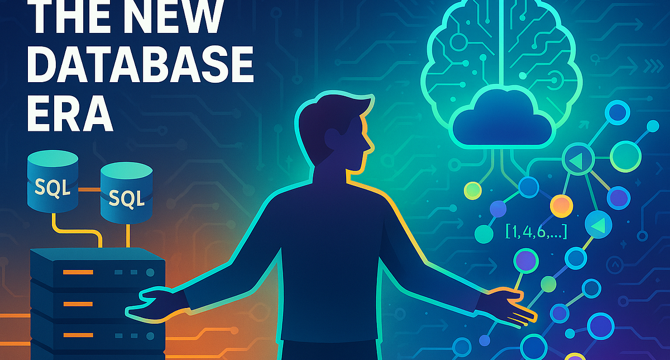Medium
1M
197

Image Credit: Medium
AI and the New Database Landscape for LLM Applications
- Traditional databases are investing in AI features to simplify architecture by handling AI workloads and transactional data in one system, eliminating the need for multiple systems and data copying.
- Relational and NoSQL databases now support vectors, embeddings, and similarity search, evolving into multi-model databases that combine structured, unstructured, and vector data.
- Vector databases enable metadata filtering and hybrid queries, bridging structured data and unstructured semantics to efficiently retrieve similar items with specific conditions.
- They offer horizontal scalability, high-dimensional support, and distributed storage for massive embedding collections across clusters of machines, catering to search efficiency as data scales.
- Venture capital has heavily invested in vector DB startups, showcasing the value and potential of this technology in handling semantic memory for AI applications.
- Hybrid search engines merge keyword and vector searches, providing a comprehensive approach to handling precise and semantic queries effectively in one system.
- Retrieval-augmentation (RAG) pipelines have become pivotal for LLM applications, offering real-time flexibility and cost-effective access to up-to-date or proprietary information.
- RAG adoption surged in 2024 as organizations leveraged its ability to provide missing contextual information to LLMs on demand, enhancing their generative capabilities.
- Effective retrieval through solid vector stores is vital for RAG success, influencing the quality of AI answers by providing relevant information during conversations.
- The LLM stack commonly includes components like data pipeline, vector store, LLM service, and orchestration layer, emphasizing the importance of structuring these elements for efficient AI operations.
- The landscape of LLM applications is evolving rapidly, offering a range of choices from traditional databases to specialized stores, allowing modular design and integration of powerful tools as needed.
Read Full Article
11 Likes
For uninterrupted reading, download the app